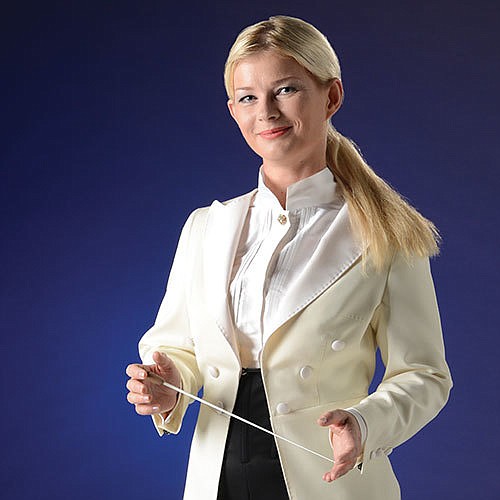- December 26, 2024
-
-
Loading

Loading

It’s hard to dream of winter when the air is balmy and the best beach in the country is just a few minutes’ drive. But the Sarasota Orchestra’s third Masterworks program of the season brought us close to the season, at least in our imaginations, with some hot music from northern climes.
Opening with “The Children of Captain Grant” Overture, a short piece by Isaak Dunayevsky, a Soviet composer who spent much of his time writing film music, along with operettas, Anu Tali led her Sarasota Orchestra with good, brisk tempos that showed off the musicians’ spirit and technical aplomb. Sounding like a popsy Tchaikovsky without the master’s unique voice, this Overture could have been a cutting-floor excerpt that never made it into Tchaikovsky’s opera, “Eugene Onegin.” But it was fun, zesty and a good opener for an all-Russian program.
Rachmaninov’s Third Piano Concerto is one of my favorite works, and I must say, I’ve never heard it played this way before. My introduction to this great, expansive, romantic work came from an LP by the elusive but equally great pianist, Arturo Benedetti Michelangeli, and it was love at first sound. (I was supposed to see the master in this concerto at Carnegie Hall a few years later but, typical for him, he cancelled at the last minute.)
The soloist with Tali and the Sarasota Orchestra was the Estonian pianist, Mihkel Poll, who is as tall as his hands are enormous. Rachmaninov is said to have had a stretch of more than an octave and a fifth, and I think Poll has the same reach. If he were a ballet dancer, he’d be known for his gigantic turn-out but, unfortunately, not his finesse.
Poll phrases without breathing, creating a rushed, murky sound, because of his overly heavy foot on the sustaining pedal. I wanted so much for his music to breathe, but it just never happened, and that made his interpretation lack cohesion and contour. Romanticism in any art, especially music, doesn’t mean eliminating clarity. Not to beat a dead horse with imagery, but I felt I was hearing, not Rachmaninov, but Debussy, lost in the Steppes of Central Russia.
His encore, a Tchaikovsky “Meditation,” was just as muddled, leaving me with the impression that Poll has a well-developed physical technique, but not much musicality or sense of phrasing. In the Rachmaninov, it was amazing that Tali and the Orchestra were able to work with him at all, much less make the Concerto into an integrated work with a mutually agreed upon sense of music making.
The second half of the program was a breath of musical fresh air. Tchaikovsky’s Symphony Number 1, subtitled “Winter Dreams,” is the kind of programmatic music that sends images flying through our heads, especially when it’s played with the brilliance and transparency Tali elicited from the Orchestra. Here we had crystalline phrases that were well-sculpted and beautifully crafted. The violas had a wonderfully rich, fat sound, and the triplets scampered through by the winds were perfectly stylistic for Tchaikovsky.
Best of all, Tali not only breathed with the phrases, she also reminded us that rests — silences — are as important and musical as the notes. This was a stirring, imaginative reading of a Tchaikovsky, who was finding his own, very distinctive voice, and it sent images of snowy sleigh rides and Pixar-animated skaters sending shimmering ice through the air.
The Orchestra concluded with the famous “Polonaise” from “Onegin” in a festive encore, in which Tali let the musicians run with the music (especially those great horns) and make phrases that sang like an opera.